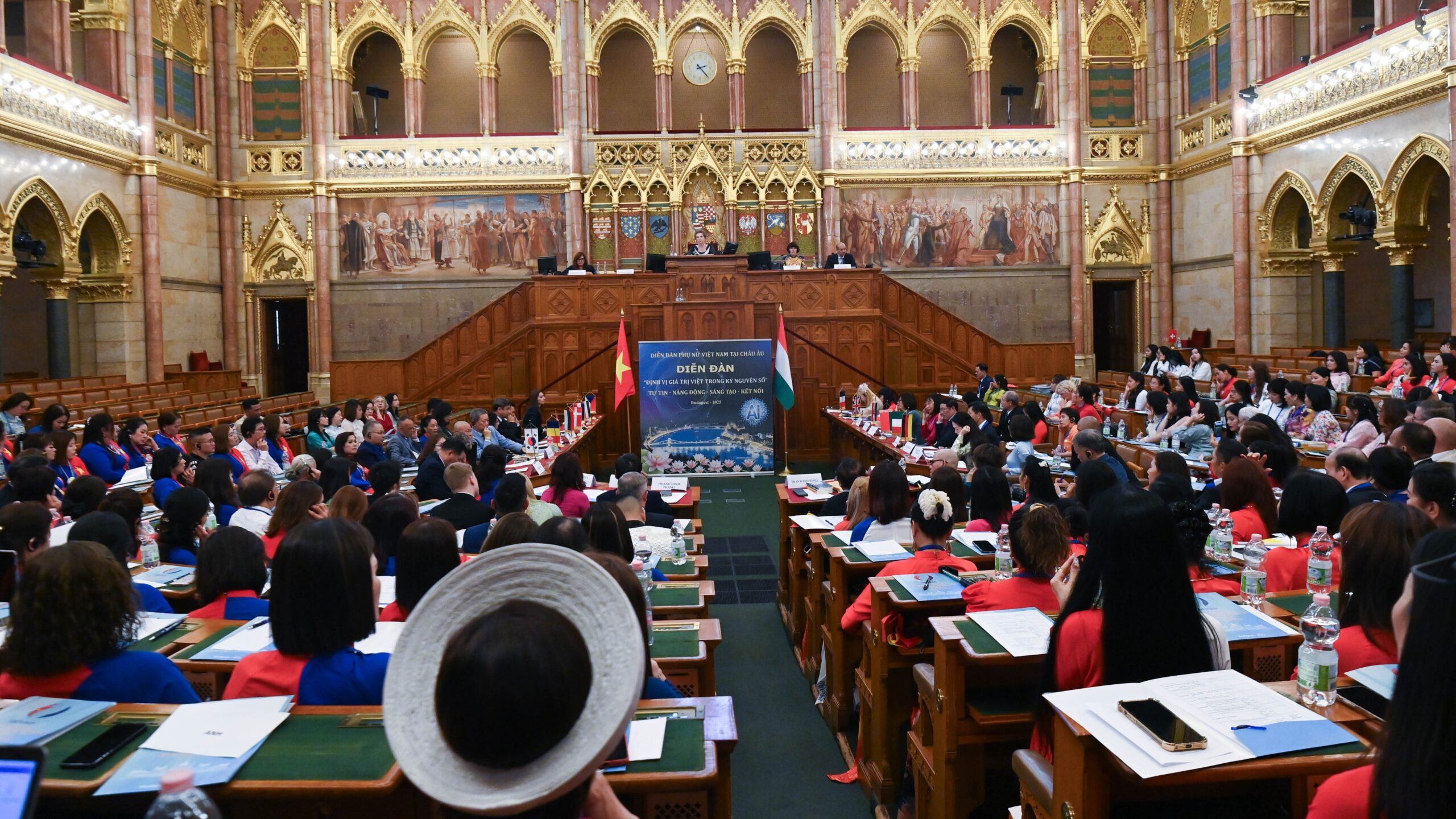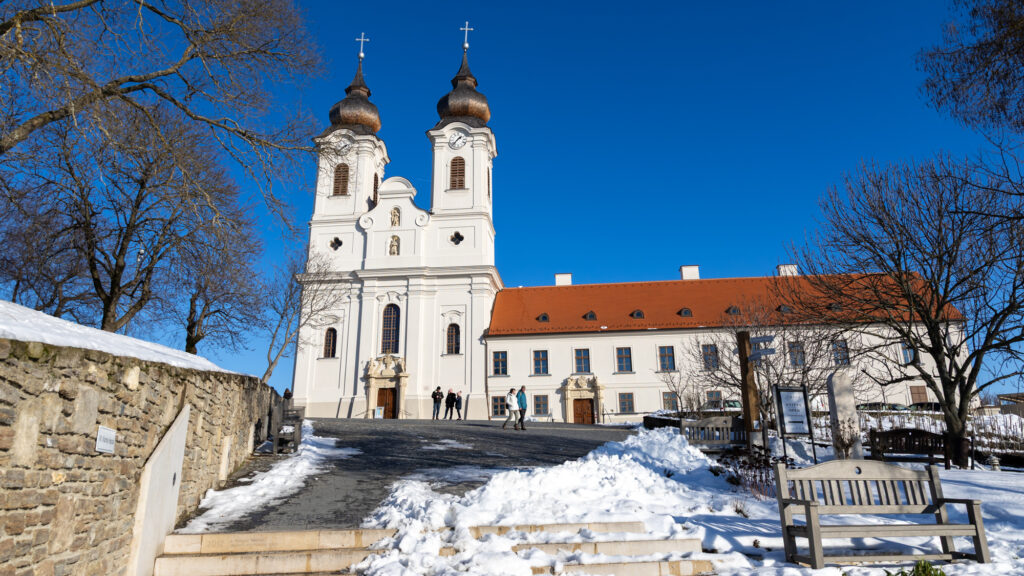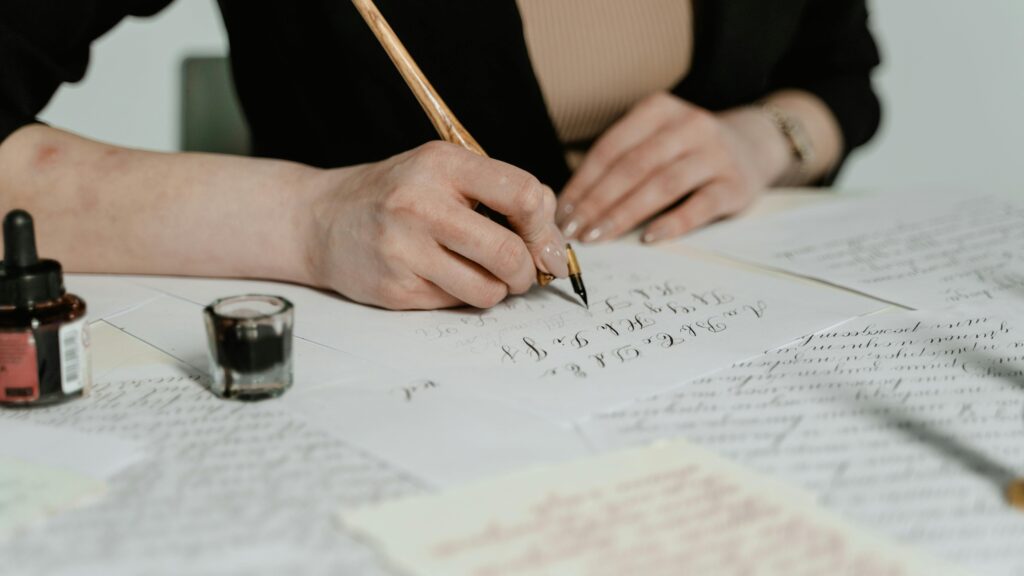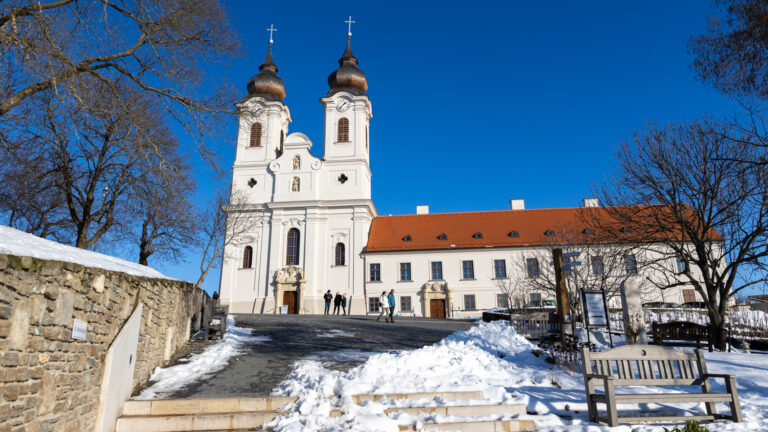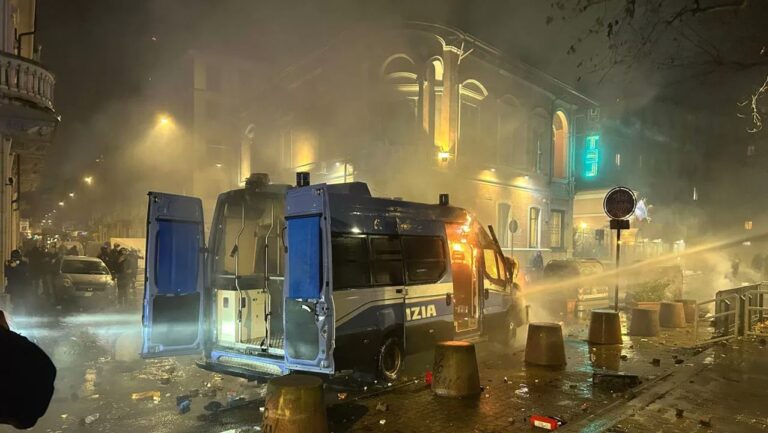In the spirit of connectivity, Budapest proudly engaged with Vietnamese soft power on 15 June 2025, when the forum Positioning Vietnamese Values Abroad in the Digital and Artificial Intelligence Era was held in the Senate Chamber of the Hungarian Parliament Building. The main topic of discussion was how diasporas are using technology—especially AI—to preserve and promote national identity, and why Hungary should take note. This high-profile event was hosted by the Vietnamese Women’s Forum in Europe, which had also held its first forum in Budapest on 3 June 2023, ‘gathering nearly 250 delegates from 21 countries.’
Forum Summary
Thanh Niên, one of the most circulated Vietnamese daily newspapers, reported on the event in great detail. The outlet noted that over 300 delegates from 18 countries attended the forum, which featured a welcome speech by Hungarian National Assembly First Vice President Márta Mátrai, who praised Vietnam’s contributions to Hungary and the strength of bilateral ties. Marking 75 years of Vietnam–Hungary relations and growing bilateral trade (up over 10 per cent in early 2025), the event spotlighted how overseas Vietnamese, especially women, are preserving national identity while adapting to technological change, using AI as a tool for cultural connection.
The forum also highlighted the vital role of Vietnamese women in Europe as cultural ambassadors and community leaders. Chair of the Vietnamese Women’s Forum in Europe Dr Phan Bich Thien emphasized their mission to remain ‘confident, dynamic, creative and connected’. These women balance integration into European societies with preserving Vietnamese traditions through education, culture and community engagement. From academics to caregivers, they maintain cultural continuity while embracing modernity. Organizations like the Women’s Union in Hungary support this effort through charity work, cultural events and language preservation. The forum recognized these contributions as central to Vietnam’s global identity in the digital era.
‘Identity, culture and tradition can thrive alongside technological advancement’
The forum finally emphasized how artificial intelligence and digital technologies are reshaping the way cultural identities are preserved and projected abroad. Dr Phan Bich Thien noted that overseas Vietnamese women must adapt quickly to these changes to remain effective cultural bridges. AI offers tools for language preservation, heritage education and global networking, allowing diasporas to stay connected while innovating. Ambassador Bùi Lê Thái stressed the importance of ‘integration without dissolution’, affirming that identity, culture and tradition can thrive alongside technological advancement. In this context, women are both preservers of culture and strategic actors in Vietnam’s digital-era soft power.
More on Márta Mátrai
As profiled in a March 2014 Femina article, born in Szombathely in 1948, Dr Márta Mátrai is a lawyer by training and a long-serving Fidesz politician. She earned her law degree in Pécs and began her career as a legal adviser before holding executive roles at Kapos Klinker Rt and OTP Ingatlan Rt. In 1989–1990, she founded Fidesz’s Kaposvár organization, entering local politics and later serving in the city council until 1998. A Member of Parliament since 1998, Mátrai became Deputy Leader of the Fidesz parliamentary group and joined key committees, including constitutional and legal affairs. In 2012, she was appointed házmester (House Steward), responsible for diplomatic protocol and parliamentary representation, an understated but symbolically powerful post in Hungary’s legislative structure.
Quoted in a 10 July 2018 Magyar Hírlap article, Márta Mátrai described Hungarian as ‘a homeland’ for scattered Hungarians, stating it carries the emotional and intellectual heritage of a nation. Speaking at the 23rd Hungarian Summer University of the Carpathian Basin, she underscored the role of language in national unity and memory. For her, the Hungarian language is not just a tool of communication but a repository of shared feelings, ideas and identity. She reminded young Hungarians abroad that those who study in Hungarian, guided by diligence, can reach the highest international achievements, just as Hungarian Nobel laureates have proven before.
‘Hungarian language is not just a tool of communication but a repository of shared feelings, ideas and identity’
Mátrai also highlighted the academic mission of universities, calling them ‘the antechamber of science’, where knowledge rooted in national language meets global opportunity. She stressed that many paths exist to engage with the world, but a shared scientific language (in this case, Hungarian) strengthens community. Quoting the Prime Minister, she affirmed that ‘the future will be written in the Hungarian language.’ Her speech called on youth to take pride in their linguistic heritage and to use it as a foundation for cooperation across generations and borders. Language, in her view, is not only a past to preserve but a destiny to build.
More on Dr Phan Bich Thien
As profiled in a May 2020 168.hu article, Dr Phan Bich Thien is a Vietnamese Hungarian poet, entrepreneur and cultural mediator. After studying in Moscow, she moved to Budapest in 1998 and built a life rooted in both Vietnamese and Hungarian traditions. To her, the Mekong and Danube evoke the same sense of home. A believer in the lotus flower as a symbol of resilience, she radiates serenity and balance. Though known in Hungary for business success, she remains deeply connected to her Vietnamese roots and to literature, spirituality and the idea of belonging in two worlds.
Dr Thien is a devoted admirer and translator of Sándor Petőfi, whose verses she considers as profound as those of Pushkin. Her translations of ‘I Am Hungarian’ and the ‘National Song’ into Vietnamese were shared publicly, including at the József Attila Theatre in 2015. She sees Petőfi not just as a revolutionary poet but as a writer of nuanced lyricism and emotional depth. Her literary mission bridges cultures, allowing Vietnamese readers access to Hungarian national identity through poetry. Though her business life is busy, she cherishes quiet time to continue translating Petőfi’s work, which is her deeply personal cultural undertaking.
‘She has created not just physical landmarks, but a spiritual and cultural passage between Hungary and Vietnam, anchored in memory, poetry and faith’
In Simontornya, Dr Thien and her husband have revived the decaying Fried Castle into a thriving resort, creating jobs in one of Hungary’s poorest districts. Nearby, on Mosé Hill, they have built Hungary’s first official Vietnamese Buddhist shrine, complete with dragon-crowned rooftops, a Hue-sourced bell and copper Amitābha statue. For her, the shrine is a symbol of harmony between East and West. A Petőfi statue stands nearby, completing a cultural circle. With calm persistence, she has created not just physical landmarks, but a spiritual and cultural passage between Hungary and Vietnam, anchored in memory, poetry and faith.
More on Vietnamese Ambassadors to Hungary
In an early 2025 message following the presentation of his credentials to president Tamas Sulyok and ahead of the celebration of the 75th anniversary of diplomatic relations between Vietnam and Hungary, Ambassador Bùi Lê Thái emphasized that Vietnam views Hungary as a key partner in Central Europe, while Hungary considers Vietnam its most important ally in Southeast Asia. At the time, trade between the two countries had surpassed $1 billion, reflecting deepening ties since the 2018 Comprehensive Partnership agreement. The ambassador also highlighted the Vietnamese community in Hungary as a ‘precious bridge’ which is well-integrated, economically active and central to bilateral understanding.
On 7 July 2021, at the Hungarian Presidential Palace, 2021–2024 Vietnamese Ambassador to Hungary Nguyễn Thị Bích Thảo had formally presented her letter of appointment from President Nguyễn Xuân Phúc to Hungarian President János Áder. Despite Covid-19 restrictions, she had joined fellow ambassadors from Italy, Nigeria and Slovenia for a brief meeting with President Áder, who praised Vietnam’s development and reaffirmed Hungary’s support for bilateral cooperation. At the time, he emphasized areas like pandemic response and environmental sustainability, referencing the upcoming Planet Budapest 2021 Summit. Ambassador Thảo had then expressed her deep honour and pledged to strengthen the comprehensive partnership for mutual benefit, peace and sustainable development.
On 13 November 2017, 2014–2017 Vietnamese Ambassador to Hungary Nguyễn Thanh Tuấn was awarded Hungary’s prestigious Middle Cross Order of Merit for his exceptional contributions to bilateral relations. Presented by Deputy Foreign Minister Magyar Levente, the award recognized his role in elevating Vietnam–Hungary ties through high-level visits, economic cooperation and cultural diplomacy. During his tenure, Hungary’s President, Prime Minister and Foreign Minister all visited Vietnam. Tuấn also fostered dialogue across political, judicial and educational spheres, while supporting the Vietnamese community in Hungary. At the farewell ceremony, he pledged to continue strengthening bilateral friendship in any future diplomatic or professional capacity.
As Hungary and Vietnam celebrate 75 years of diplomatic relations, their story is increasingly shaped not just by politics, but by poetry, people and shared principles. From Márta Mátrai’s vision of language as homeland to Dr Phan Bich Thien’s bridge between Danube and Mekong and to ambassadors who have carried that vision forward, the partnership stands as a model of cultural diplomacy. In an age defined by algorithms, however useful, the soul of a nation still speaks in verse. As Mihály Vörösmarty wrote in the ‘Szózat’ (‘Appeal’): ‘Hazádnak rendületlenül légy híve, ó magyar’: ‘Be steadfastly faithful to your homeland, O Hungarian’.
Related articles:

